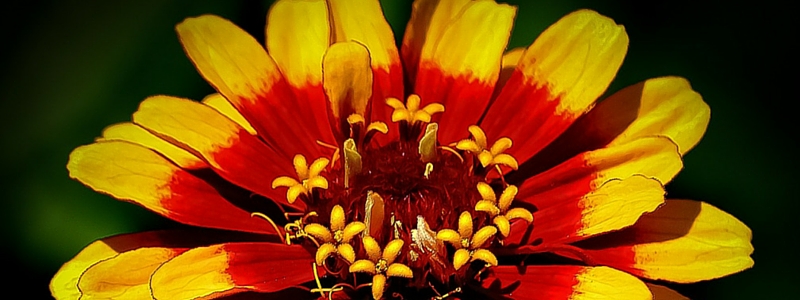What is Garden Feng Shui?
You may wonder why people who have yard/garden clutter sometimes have problems in life? That’s Feng Shui. The energy of your home and landscape is directly related to your life. Balanced, flowing and vibrant spaces attract good Feng Shui. Make it beautiful and de-cluttered and it will change your life!
All the spaces that surround your home reflect how you feel and either bring good or not so good energy into your home. For example, having a clean, clear entrance each time you enter your home sets the tone for how you will feel. Those dead plants outside your door are not attracting good Feng Shui energy!
How do you attain good Feng Shui energy?
By using a few simple tools. The main Feng Shui tool is the bagua map which is the same map you use on your home to determine where each of your 9 life areas are. Your garden is an extension of your home and we use the same bagua map there as well. See my “About” page of www.allthingsbalanced.com for an example of a bagua map.
The second Feng Shui tool used are the 5 elements. To bring balance to your garden and landscape we use the 5 elements which are wood, water, earth, metal and fire. Here are some examples of each of these elements:
Earth – Rocks, soil, tiles, earthy colors or the color yellow.
Metal – Metal art, trellis, wind chimes or the colors gray or white.
Water – Water features, mirrors, glass balls, colors black or dark blue.
Wood – Wood objects or furniture, plants, grass or the color green.
Fire – Objects such as candles, lighting including solar lights, garden animals or the colors red, purple, orange or brown.
Here are TOP ten tips to help you create a Feng Shui garden:
1. Clear the clutter. This eliminates stale and stagnant energy. Outer clutter equals inner clutter. So, starting with a clean, organized space is key to good Feng Shui. This also includes trimming overgrown trees or plants, and removing excess furniture or pots.
2. Assess sunny and shady areas. Identify which parts of the garden get sun and which get shade and protection. There should be a good balance of both in a Feng Shui garden. This allows you to have a variety of shady and sun plants.
3. Decide on a type of garden. Here are a few examples:
-
Zen garden – great for relaxation and meditation.
-
Kitchen garden – useful for growing vegetables and herbs.
-
Low maintenance garden – filled with natural vegetation and flowers.
-
All-season garden – contains blooms all year long.
-
Entertaining garden – usually includes a barbecue, patio, and space for games.
Design your garden according to your needs and desires. The goal is to make your garden a place of comfort. If it doesn’t feel right, chances are your space is unbalanced and changes need to be made.
4. Use natural materials. Whenever possible, it is important to use natural materials such as native plants, wood items, rocks, and mulch to add to the visual appeal. For example, plastic furniture is not good use of material in Feng Shui. Instead, choose wood or metal when possible.
5. Add a water feature. The addition of water to your garden adds sound and brings in the flow of abundance. A slow moving fountain or pond raises the chi energy and generates more prosperity in your life. Always be sure the water is flowing towards your home.
6. Choose different colors. Diversifying the color of items will help balance the space and make your garden more visually appealing. In particular, try balancing reds, oranges, and purples (fire colors) with whites, yellows and pastels (calming colors).
7. Use different heights. Varying the height of plants stimulates our sight and creates a more interesting space.
8. Create meandering paths. Winding paths slow down the chi energy and keep it within the space. Straight passageways allow it to escape more easily.
9. Segregate sharp, pointy plants. Avoid positioning plants with sharp, pointy leaves such as roses and holly beside paths. They give off negative energy and could harm you and your guests if you rub against them.
10. Make a list. Prioritize what needs to be done first. Don’t overwhelm yourself and try to do everything at once. Take your time – creating a good Feng Shui garden is about the journey and connecting with nature.
Hope you enjoyed Garden Feng Shui, Happy Gardening!
